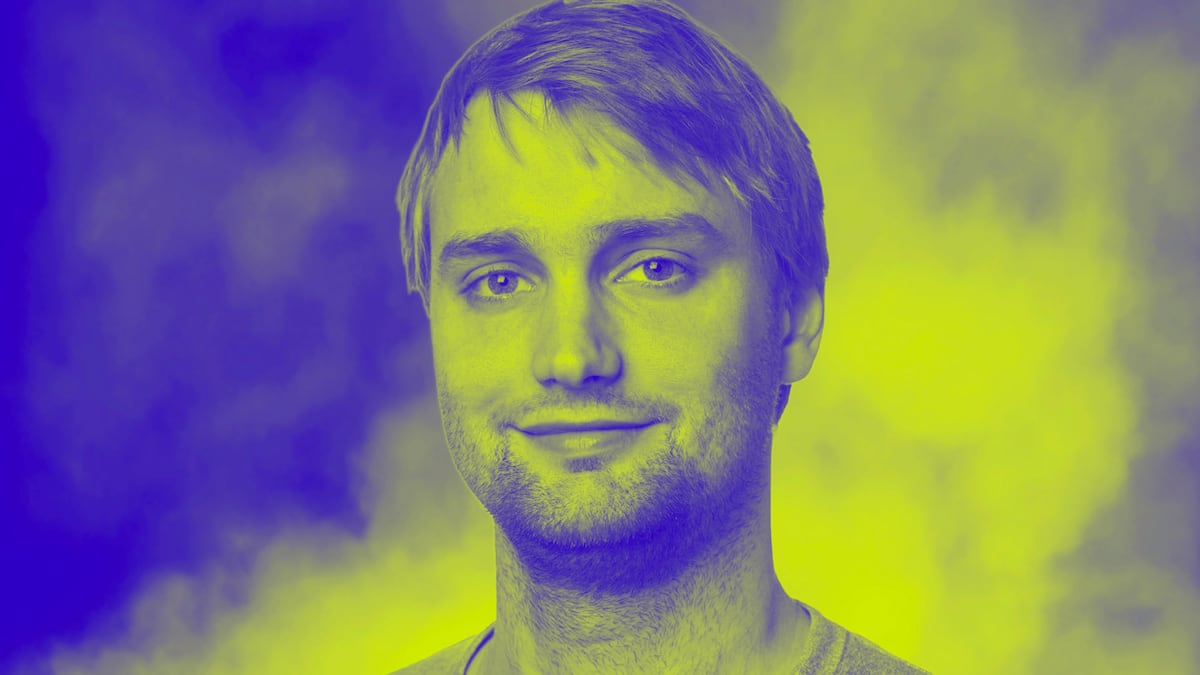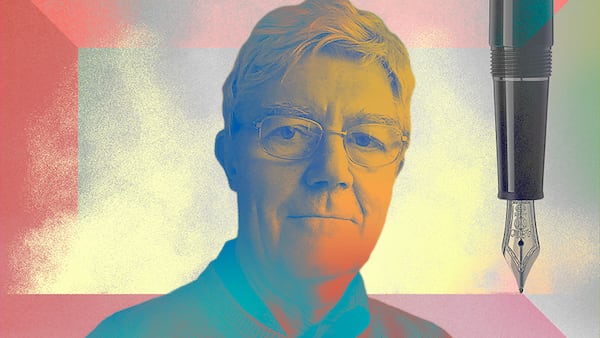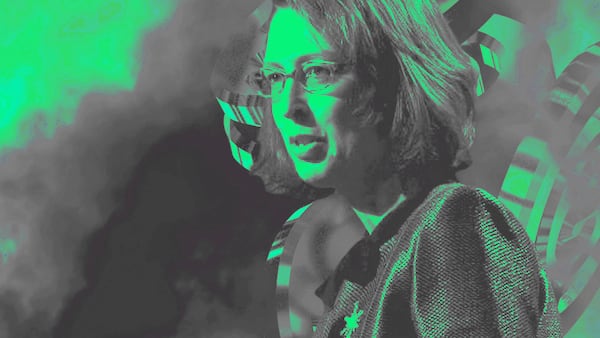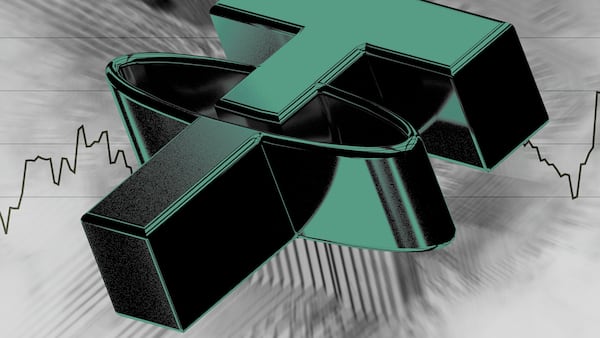- MakerDAO is voting on a proposal that would require its delegates to hide their identity and whereabouts
- MakerDAO will offer a “whistleblower bounty” to any member who could provide evidence a delegate’s identity had been made public
- The change is intended to make it impossible for “potential attackers, bribers etc to know which companies or people to target,” says founder Rune Christensen
Anonymity has been part of crypto from the get-go. The person — or people — who created Bitcoin remain pseudonymous to this day.
But at MakerDAO, the multibillion-dollar DeFi cooperative, keeping your identity secret could soon become a requirement.
MakerDAO is poised to approve an eyebrow-raising requirement that certain members contribute anonymously. To ensure they comply, the cooperative DeFi lender and stablecoin provider would offer other members a “whistleblower bounty” to tattle on their anonymous peers.
Members targeted
The proposal, which is championed by Rune Christensen, MakerDAO’s influential founder, has now been submitted to the MakerDAO membership for approval. Christensen has argued that enforcing anonymity would better protect MakerDAO members from being targeted by criminals and hostile governments.
As voting takes place before a Monday deadline, not everyone is buying his case.
One software engineer at MakerDAO told DL News they had left, in part, because of concerns about the bounty policy. Another longtime MakerDAO contributor who spoke on condition of anonymity called Christensen’s argument “specious.” Christensen did not respond to requests for comment.
NOW READ: DeFi’s biggest exchange Curve Finance takes a shot at stablecoins
The initiative hits as MakerDAO struggles to reorganise its structure and execute a vital new strategy called Endgame. Last month, six of the project’s 11 full-time software engineers responsible for the Protocol Engineering Core Unit, the heart of the venture, said they will stop contributing to its maintenance, safety and development.
“It’s undeniable that [Endgame has] been a polarising topic within the community,” another former MakerDAO software engineer told DL News.
Even former developers are split. “As with any two-sided story, the truth is usually somewhere between the two extremes.”
‘It turns out that the hardest thing about DeFi is not the technology, or the regulation — it’s the humans.’
— Kianga Daverington
The drama demonstrates the challenge of running a leaderless cooperative — the stated goal of most players in decentralised finance — and the more pragmatic needs of running a financial business.
As MakerDAO tries to iron out its model, many in DeFi are watching closely. With almost $7 billion in deposits, or total value locked, the eight-year-old venture is the second most valuable DeFi project, according to DeFiLlama.
“It turns out that the hardest thing about DeFi is not the technology, or the regulation — it’s the humans,” Kianga Daverington, ACREinvest founder and MakerDAO contributor, told DL News.
The reward is meant to compel certain members, called delegates, to ensure they keep secret their identities and whereabouts. The idea is that this cloak of anonymity will protect delegates from being targeted by criminal networks, hackers, and authoritarian regimes.
NOW READ: DeFi protocol in $3m scam was ‘Certik audited’
Delegates will forfeit their salary if there is “clear evidence” or “significant suspicion” their identity has been made public. If an “ecosystem actor” provided that evidence, that person is entitled to a bounty equal to half the delegate’s monthly salary. It’s paid in MKR, the protocol’s governance token. And delegate salaries can be substantial: for their work in April alone, 11 delegates will split more than $115,000 worth of MKR.
Real life connections
“The point is that it should not be possible for potential attackers, bribers etc to know which companies or people to target,” Christensen wrote in the MakerDAO governance forum in February.
The proposal also aims to prevent delegates from capitalising on friendships or prior business relationships when they engage in MakerDAO activities. This is why it isn’t possible for delegates to “appeal to real life personal connections or social politics to accumulate power.”
The policy is just the latest unorthodox idea to rattle MakerDAO as it struggles to adapt to a marketplace roiled by anxiety over regulatory action and constant hacking. There’s a lot at stake for all of DeFi.
‘The point is that it should not be possible for potential attackers, bribers etc to know which companies or people to target’
— Rune Christensen
The Maker protocol plays a vital role in decentralised finance. It mints DAI, the world’s fourth-largest stablecoin with a market capitalization just under $5 billion.
DAI is backed by collateral that includes a mix of Ether, other dollar-pegged stablecoins, and real-world assets such as US Treasury notes.
But it has struggled to live up to its promise as a leaderless community designed to foster a digital currency system outside the reach of states and central banks.
Christsensen, an outspoken advocate of decentralisation, has produced a stream of proposals to strengthen Maker and adapt it for a rapidly changing marketplace. His Endgame plan, introduced last year, is designed to democratise the cooperative and transform DAI into a true alternative to the US dollar.
NOW READ: EU muddies regulatory clarity on crypto with new tax reporting bill
Among other things, Endgame would split the cooperative into several mini-cooperatives; rebrand DAI and MKR, Maker’s governance token, and use artificial intelligence to help members digest and vote on proposals. Members approved Engame’s “constitution” in March. The anonymity requirement is buried deep within a suite of amendments to Endgame.
According to the text of the proposal, the requirement seems to apply only to delegates, paid members who act as quasi-politicians. Delegates pitch their expertise and vision for Maker, and other members delegate their MKR for voting purposes.
But some believe the requirement would apply to other MakerDAO contributors, such as developers.
Enforcing anonymity
Christensen’s argument that enforcing anonymity would protect Maker from bad actors doesn’t add up, said the longtime Maker contributor.
Delegates do not control the MKR they receive from other members, the contributor said. In the event a delegate is “compromised,” members can instantly withdraw their delegated MKR. As such, delegates should not be considered a target.
“If you really are a criminal organisation or a government that is intent on attacking Maker, you have some really obvious options [other than delegates]. One is to go find one guy in Denmark, because he’s got 13% of the MKR,” the contributor said, referring to Christensen, who is based in Denmark.
Moreover, delegates might find it hard to remain anonymous, no matter how hard they try.
Suspicious people
“It’s impossible to keep attending meetings and posting on the forum with your voting record, and not let something slip,” the contributor said.
Others have worried about the effect it would have on morale within the DAO.
The bounty would “hinder collaboration and damage the community spirit of MakerDAO,” CodeKnight, a pseudonymous delegate, wrote in the governance forum this month. “It will create an environment where people are suspicious of each other and collaborative activity is risky.
NOW READ: VanEck sees Ether soaring 27-fold to $51,000. Or, it could sink to $300
But Daverington, an opponent-turned-supporter of Endgame, has argued the anonymity requirement could level the playing field in MakerDAO.
“It is a measure that promotes inclusion and mitigates bias in social relations, access to opportunities and reward for merit,” she wrote in the governance forum.
Some software engineers who left MakerDAO have returned as anons, according to Doo Wan Nam, co-founder of StableLab and a former delegate who recently transitioned roles within the DAO, in part due to the anonymity requirement.
(Two former software engineers who spoke to DL News said colleagues who had made their resignations public did not do so in order to trick observers.)
As anon
Indeed, an organisation called PullUp Labs claims to be founded by former software engineers who had worked on the core protocol at Maker. In April, it said it was willing to continue work on Endgame.
“Ironically, the best way to be anonymous is announcing you no longer work with Maker,” Nam told DL News. “And then continue to contribute as Maker but as anon.”



